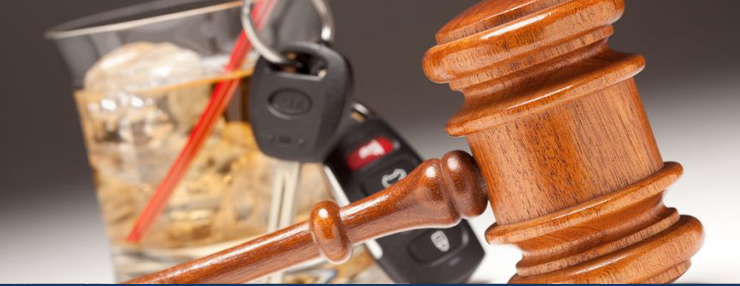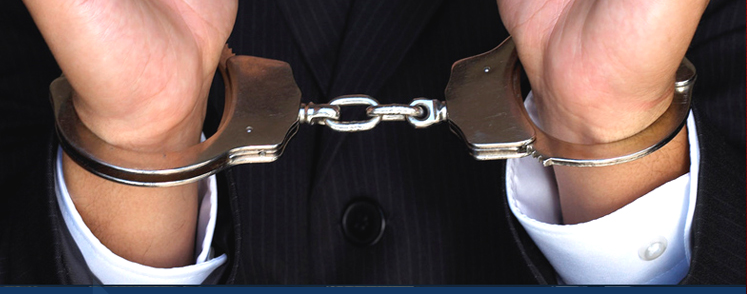Steps Following DWI Arrests
1) GET OUT OF JAIL
Once the officer places the handcuffs on you and says that you are under arrest for a DWI, try to remain calm. There is nothing you can say, do, or blow into that will prevent you from going to jail. The first step is to arrange for your release from jail. Call 214.702.CARL (2275) in Dallas, Collin County, and all other surrounding counties in the Dallas-Fort Worth metroplex, or 512.657.9992 in Austin and Central Texas and Carl will help arrange a fast and speedy release.
2) CONSULT AN ATTORNEY
Time is of the essence after you are arrested for a DWI. It is better to hire an attorney sooner rather than later. There are deadlines that have to be met to contest the license suspension (the "ALR" proceeding). It is also better to have your attorney get started on formulating a possible defense as soon as possible. Some people wait until the day they are supposed to appear in court to start thinking about hiring an attorney. This is a bad idea. Just like anything else, it is better to start early if you want the best possible result.
3) WRITE DOWN A NARRATIVE OF THE FACTS
The detailed facts of the case always matter. The arresting officer will write down what happened that night. He will place this in a report and turn it in to be used as evidence. It is best for you to do the same. The reality is that if your DWI case proceeds to trial, it may take many months, or even a couple of years, to actually be presented in a trial setting. Memories fade with the passage of time. This is especially true with police officers, who make numerous arrests throughout the course of a year. Having a specific recollection of the facts involved to narrate to a jury can be helpful. Not being able to fully recall the events that transpired will not be very compelling to a jury. You will want to tell your side of the story, and the clearer this is, the better. Therefore, write down a narration of the facts as you remember them as quickly as possible.
4) OBTAIN RECEIPTS, WITNESS STATEMENTS, ETC.
Receipts from restaurants/bars, witness statements from friends, and other tangible pieces of evidence can help document a story. These items are sometimes difficult to get if too much time elapses before the case proceeds to trial. Therefore, try and obtain these documents immediately following the arrest to preserve them if needed later.
5) SCHEDULE ALR
You only have 15 days from the date of the arrest to schedule an "ALR" hearing. Most people are very confused by this process. For a 1st time DWI arrest, your license will be suspended for either 90 days (if you submit to a breath/blood test) or for 180 days (for a breath/blood test refusal). The length of a suspension varies if you have a previous DWI conviction. If you do not schedule the "ALR" within the 15-day window, your license will automatically be suspended for the statutory period of time after 40 days from the date of the DWI arrest. There is a 1-800 number at the bottom of the paperwork that is given as the temporary driving permit (usually a yellow piece of paper). Call this number and request an ALR hearing to preserve your opportunity to contest the license suspension. Conducting an ALR hearing can be productive for a variety of reasons. To read more about why, click here.
6) GET AN OCCUPATIONAL LICENSE IF NEEDED
If your license gets suspended following the ALR hearing, you will need to get an occupational driving license (ODL). If you have previous DWI convictions, there may be a waiting period before you are eligible to receive an occupational driving license. Please call The Law Offices of Carl David Ceder, PLLC, to see if you are eligible to obtain an ODL. The ODL is granted for "essential" driving needs. If your license is suspended and you are pulled over, you will likely receive a "Driving While License Invalid" charge, which is a Class B misdemeanor. It is always best to obtain an ODL if you know you will be driving during your license suspension.
7) ATTEND FIRST COURT SETTING
There will be a "First Appearance" for your DWI case, usually where your attorney will attend and obtain whatever discovery is on file with your case. If you do not attend this “First Appearance,” a warrant will likely be issued for your arrest. It is best to retain an attorney well in advance of this setting.
8) REVIEW DISCOVERY (WRITTEN REPORT)
The discovery in a DWI case usually consists of the video of the DWI investigation and a written report created by the arresting officer. You attorney should evaluate this to see if there are any deficiencies that can possibly be exploited to aid with your defense.
9) REVIEW VIDEOTAPE
The videotape is often the main piece of evidence the state relies upon when trying to obtain a conviction for a DWI. It is extremely important to review the videotape to develop a proper defense. Because juries usually "scrutinize" the video of the DWI arrest very closely, it is imperative to be well prepared ahead of time. Often, the video itself tells a far different tale than the one the arresting officer writes in the report. It is important to analyze the video very closely, regardless of the direction the defense will take.
10) REVIEW POTENTIAL DEFENSES (GERD, Medical Injuries, etc.)
There are numerous defenses that are possible with a DWI case. DWI cases can either be attacked on legal grounds (i.e. an unconstitutional traffic stop by the arresting officer), or with factual issues (the driver simply was not "intoxicated" under current Texas DWI Law). The defense specific to your case should be discussed in full detail with your attorney. Often there are reasons that could lead to a false-positive result if a chemical test is obtained. Medical conditions such as GERD could lead to an improper reading on the Intoxilyzer 5000. Often there are very simple reasons as to why the Standardized Field Sobriety Tests (SFST’s) are not performed optimally by a driver (weather conditions, roadside surface conditions, injuries, etc.). The specific facts of your DWI case should be fully taken into consideration and evaluated very closely by your attorney after all information is received.
11) DISCUSS PLEA BARGAIN OFFER
At a certain point the state will offer a plea bargain in lieu of proceeding to trial. If the offer is for a DWI conviction, often there is very little reason NOT to go to trial. The definition of a DWI in Texas is the "loss of the normal use of mental, and/or physical, faculties due to the introduction of alcohol." This is a very subjective standard and is almost entirely left open to the interpretation of the arresting officer.
12) SET FOR TRIAL
The last step of the process is to set the case for trial. Any DWI case can be tried to a jury and possibly won. There are no guarantees regarding the outcome, and the chance for success differ for every case. Your DWI Defense attorney should welcome the opportunity to try a case to a jury if all parties feel this is the best option. If the case does proceed to trial, the accused should at least be proud knowing they exercised their constitutional right to have a jury assembled to determine the outcome of the case (and not a judge, prosecutor, or anyone else).







































